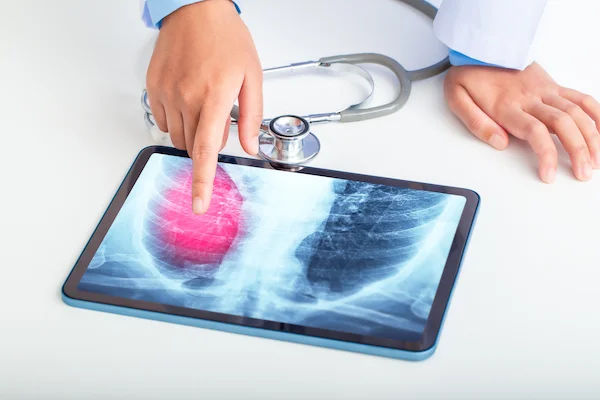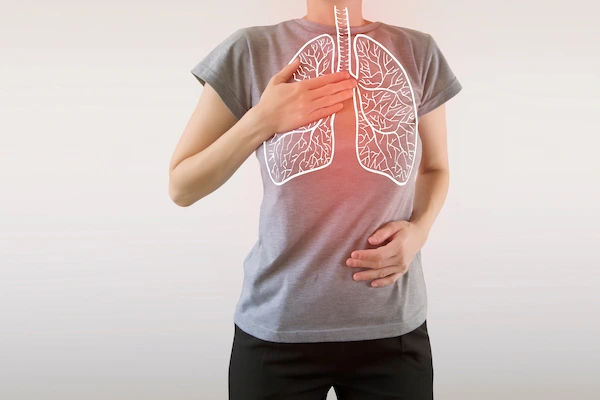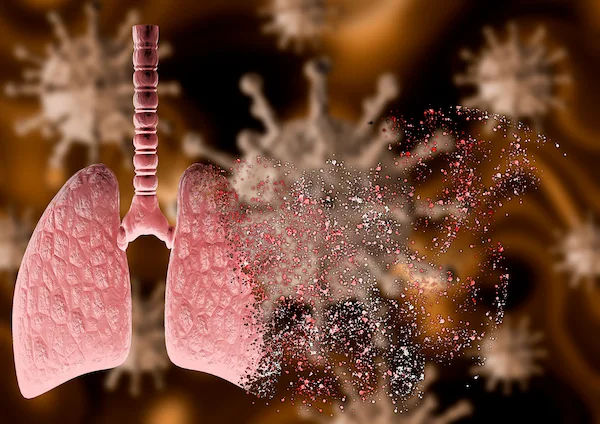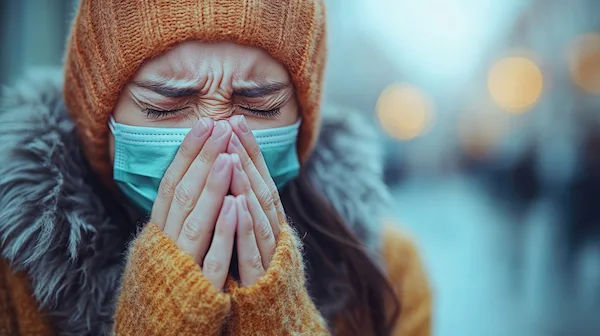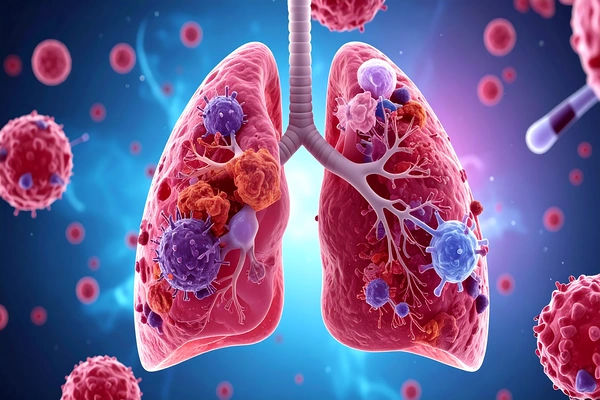World Pneumonia Day: A Complete Guide
Learn about World Pneumonia Day, its purpose, key facts, prevention measures, and global efforts to raise awareness and fight pneumonia.

Written by Dr. Shaik Abdul Kalam
Reviewed by Dr. D Bhanu Prakash MBBS, AFIH, Advanced certificate in critical care medicine, Fellowship in critical care medicine
Last updated on 13th Jan, 2026
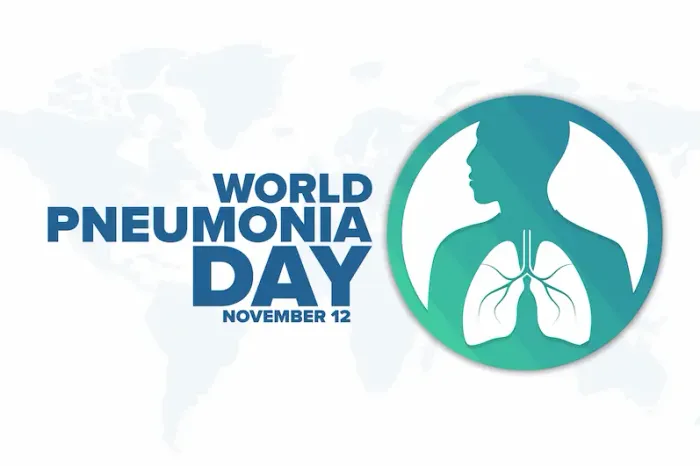
Introduction
Every 39 seconds. That’s how often a child dies from pneumonia somewhere in the world, making it the single largest infectious killer of children under five globally. Yet, despite its devastating toll, pneumonia often remains a silent crisis, overlooked in public discourse. World Pneumonia Day, observed annually on November 12th, aims to change that. It’s a day dedicated to raising awareness, advocating for global action, and promoting interventions to protect against, prevent, and treat this deadly illness. This guide will walk you through everything you need to know, from understanding your risk and recognising the first signs to the latest on prevention and the significance of this crucial global health day. Let’s demystify pneumonia and empower ourselves with knowledge.
What is World Pneumonia Day?
World Pneumonia Day is more than just a date on the calendar; it's an annual rallying point for the global health community. Established in 2009 by the Global Coalition Against Child Pneumonia, it serves as a platform for donors, policymakers, healthcare professionals, and the public to unite in the fight against pneumonia. The day emphasises the urgent need for continued investment and commitment to combating a disease that is both preventable and treatable.
The History Behind the Day
The launch of World Pneumonia Day was a strategic move to counter the neglect pneumonia had suffered despite its heavy burden. The Global Coalition Against Child Pneumonia, a network of international government, non-governmental, and community-based organisations, understood that focused advocacy could drive political will. Their goal was to bring pneumonia out of the shadows of other diseases and position it as a top priority in global child survival strategies.
The Annual Theme: A Focus for Action
Each year, World Pneumonia Day is marked by a specific theme, such as "Stop Pneumonia / Every Breath Counts" or "Championing the Fight to Stop Pneumonia." These themes focus efforts on specific solutions, whether it's advocating for vaccine equity, highlighting the role of air pollution, or pushing for better access to antibiotics and oxygen therapy in low-resource settings.
Consult a Pulmonologist for the best advice
Understanding Pneumonia: The Silent Global Health Crisis
Discover why pneumonia remains one of the world’s leading health threats, its impact, and the urgent need for awareness and prevention.
What exactly is Pneumonia?
Pneumonia is an acute respiratory infection that inflames the air sacs in one or both lungs. These sacs, called alveoli, may fill with fluid or pus, causing symptoms like a phlegmy cough, fever, chills, and difficulty breathing. It can be caused by a variety of organisms, including bacteria (most commonly Streptococcus pneumoniae), viruses (like RSV or influenza), and fungi.
Shocking Pneumonia Statistics: A Global Snapshot
The numbers paint a stark picture of inequality. While pneumonia affects everyone, its deadliness is concentrated in the world's poorest regions.
• Pneumonia accounts for 14% of all deaths of children under 5 years old.
• In 2019, over 740,000 children died from pneumonia, with the majority being under two years old.
• Over 80% of childhood pneumonia deaths occur in South Asia and sub-Saharan Africa.
• These deaths occur despite the existence of low-cost, effective prevention and treatment solutions.
Are You at Risk? Identifying Vulnerable Groups
While anyone can get pneumonia, certain groups are at a significantly higher risk of severe illness.
Why Children Are Especially Vulnerable
Children under five, and especially infants under two, have developing immune systems that are less equipped to fight off infections. Malnutrition, particularly in developing countries, exponentially increases a child's risk, as does incomplete vaccination, pre-existing illnesses like HIV, and exposure to indoor air pollution (e.g., from cooking with biomass fuels).
Adult and Elderly Risk Factors
Adults over 65 are at high risk due to a naturally weakening immune system. Other major risk factors include smoking, which damages the lungs' natural defences, chronic diseases (e.g., asthma, COPD, heart disease, diabetes), and a compromised immune system from conditions like HIV/AIDS or chemotherapy.
Recognising the Signs: Pneumonia Symptoms
Early recognition is key to successful treatment. Symptoms can range from mild to life-threatening.
Common Symptoms in Adults
In adults, bacterial pneumonia often comes on suddenly and can cause:
• High fever (up to 105°F)
• Productive cough with greenish or yellow mucus
• Sharp chest pain that worsens with deep breathing or coughing
• Chills and severe fatigue
• Shortness of breath
"Walking pneumonia," often caused by mycoplasma bacteria, is a milder form where symptoms may feel like a bad cold.
How Pneumonia Manifests in Children and Infants
Symptoms in children can be more subtle. Key signs to watch for include:
• In infants: Fever, cough, lethargy, difficulty feeding, and grunting or wheezing. A key sign is the inward pulling of the skin between the ribs when breathing (retractions).
• In young children: Rapid or difficult breathing, cough, fever, and chills. Vomiting and a bluish tint to the lips or fingernails (indicating low oxygen) are medical emergencies.
If your child is breathing rapidly, has difficulty feeding, or has a bluish tint, seek immediate medical attention. You can consult a pediatrician online instantly with Apollo24|7 for an initial assessment.
How to Protect Yourself and Your Loved Ones
Prevention is the most powerful weapon against pneumonia.
The Power of Vaccination: PCV and Others
Vaccination is the primary defence. Key vaccines include:
• Pneumococcal conjugate vaccine (PCV): Protects against the most common bacterial cause. It's part of routine childhood immunisation schedules in many countries and is also recommended for at-risk adults and those over 65.
• Hib vaccine: Protects against Haemophilus influenzae type b, another cause of pneumonia.
• Influenza vaccine: Since the flu is a common cause of viral pneumonia, the annual flu shot is a critical preventive measure.
• COVID-19 vaccine: Helps prevent severe illness from SARS-CoV-2, which can lead to viral pneumonia.
• Measles and whooping cough vaccines: These diseases can lead to fatal complications like pneumonia, so vaccination is key.
Everyday Hygiene Practices to Stop the Spread
Simple habits can drastically reduce transmission:
• Frequent handwashing with soap and water or alcohol-based sanitiser.
• Covering your mouth and nose with a tissue or your elbow when coughing or sneezing.
• Disinfecting frequently touched surfaces.
• Avoiding smoking and secondhand smoke, which damages lung function.
Building Immunity Through Nutrition and Lifestyle
A strong immune system is your body's best defence. Ensure a diet rich in fruits, vegetables, and whole grains. Exclusive breastfeeding for the first six months of life is one of the most effective ways to prevent pneumonia and other infections in infants.
Diagnosis and Treatment: What to Expect
Pneumonia is diagnosed through medical evaluation, and treatments are available to help you recover faster and prevent complications.
How Doctors Diagnose Pneumonia
If pneumonia is suspected, a doctor will:
1. Listen to your lungs with a stethoscope for crackling or bubbling sounds.
2. May order a chest X-ray to confirm the infection and see its extent.
3. Possibly perform blood tests or analyse your sputum (phlegm) to identify the causative organism.
Apollo24|7 offers convenient home collection for tests like CRP and CBC, which can help a doctor assess the severity of an infection.
Modern Treatment Protocols and Recovery
Treatment depends on the cause:
• Bacterial pneumonia: Treated with antibiotics. It's crucial to complete the entire course.
• Viral pneumonia: Antibiotics are ineffective. Treatment focuses on rest, fluids, and fever-reducing medicines. Antiviral drugs may be used in some cases.
• Severe cases: May require hospitalisation for intravenous antibiotics, respiratory therapy, or oxygen support.
Most healthy people recover within one to three weeks, but fatigue can linger for a month or more.
Get Your Health Assessed
The Impact of Climate Change and Air Pollution on Pneumonia
An often-overlooked factor is the environment. Household air pollution from cooking with solid fuels and ambient (outdoor) air pollution significantly increase the risk of developing and dying from pneumonia. Pollutants irritate the airways and damage the lungs, making them more susceptible to infection. Climate change can also alter the patterns of respiratory diseases. This makes advocating for clean air solutions a critical part of the broader fight against pneumonia.
Conclusion
World Pneumonia Day reminds us that this childhood killer is not inevitable. We possess the tools, vaccines, antibiotics, oxygen, and knowledge to defeat it. The challenge is not scientific but one of commitment, resources, and equity. By understanding the risks, recognising the signs, and advocating for greater global action, we can all play a part. This November 12th, help break the silence. Share this information, talk to your family about vaccination, and support organisations working on the front lines. Together, we can ensure that every breath counts. If you or a loved one has a persistent cough and fever, don't wait. Consult a doctor online with Apollo24|7 for prompt evaluation and peace of mind.
Consult a Pulmonologist for the best advice
Consult a Pulmonologist for the best advice

Dr. Tamal Bhattacharyya
Pulmonology Respiratory Medicine Specialist
8 Years • MBBS, MD (Respiratory Medicine)
Kolkata
MCR SUPER SPECIALITY POLY CLINIC & PATHOLOGY, Kolkata

Santoshkumar P Hammigi
Pulmonology Respiratory Medicine Specialist
4 Years • MBBS,MD, (Respiratory Medicine)
Bengaluru
Apollo Medical Center, Marathahalli, Bengaluru
(25+ Patients)

Dr. P Sravani
Pulmonology Respiratory Medicine Specialist
3 Years • MBBS, MD
Visakhapatnam
Apollo Clinic Vizag, Visakhapatnam
Dr. Ambuj Kumar
Pulmonology Respiratory Medicine Specialist
10 Years • MBBS, MD (Pulmonary Medicine)
New Delhi
Smriti Gynaecology and Lung Centre, New Delhi
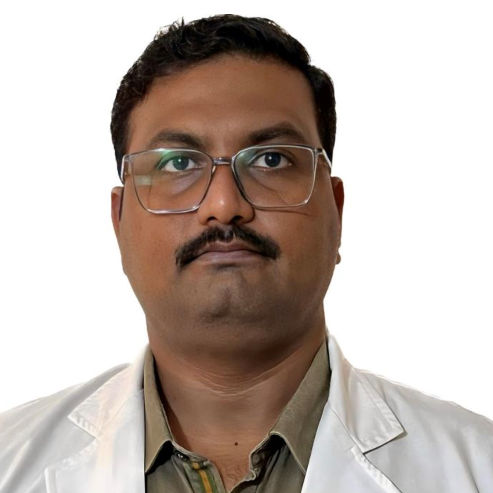
Dr Rakesh Bilagi
Pulmonology Respiratory Medicine Specialist
10 Years • MBBS MD PULMONOLOGIST
Bengaluru
Apollo Clinic, JP nagar, Bengaluru
Consult a Pulmonologist for the best advice

Dr. Tamal Bhattacharyya
Pulmonology Respiratory Medicine Specialist
8 Years • MBBS, MD (Respiratory Medicine)
Kolkata
MCR SUPER SPECIALITY POLY CLINIC & PATHOLOGY, Kolkata

Santoshkumar P Hammigi
Pulmonology Respiratory Medicine Specialist
4 Years • MBBS,MD, (Respiratory Medicine)
Bengaluru
Apollo Medical Center, Marathahalli, Bengaluru
(25+ Patients)

Dr. P Sravani
Pulmonology Respiratory Medicine Specialist
3 Years • MBBS, MD
Visakhapatnam
Apollo Clinic Vizag, Visakhapatnam
Dr. Ambuj Kumar
Pulmonology Respiratory Medicine Specialist
10 Years • MBBS, MD (Pulmonary Medicine)
New Delhi
Smriti Gynaecology and Lung Centre, New Delhi

Dr Rakesh Bilagi
Pulmonology Respiratory Medicine Specialist
10 Years • MBBS MD PULMONOLOGIST
Bengaluru
Apollo Clinic, JP nagar, Bengaluru
More articles from Pneumonia
Frequently Asked Questions
1. Is pneumonia contagious?
Yes, the germs that cause pneumonia (bacteria and viruses) can be contagious. They are spread through airborne droplets from a cough or sneeze. However, not everyone who is exposed will develop pneumonia.
2. What is the difference between pneumonia and bronchitis?
Bronchitis is an inflammation of the lining of the bronchial tubes, while pneumonia is an infection that causes inflammation in the air sacs (alveoli) deep within the lungs. Pneumonia is generally more severe.
3. How long does it take to recover from pneumonia?
Recovery time varies. Young, healthy adults may feel better in a week, while fatigue and a cough can linger for a month or longer. Full recovery for older adults or those with other health conditions can take several weeks.
4. Can you get pneumonia more than once?
Yes, it is possible to get pneumonia multiple times. There are many different strains of bacteria and viruses that can cause it.
5. Is the pneumonia vaccine necessary for healthy adults?
The pneumococcal vaccine is recommended for all adults over 65 and for younger adults with certain risk factors (e.g., smoking, chronic health conditions). It's best to discuss this with your doctor.

